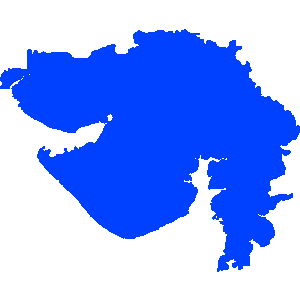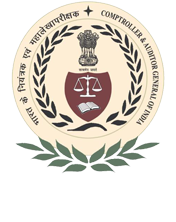Audit Reports

Gujarat
Report No 1 of 2016 - Public Sector Undertakings Government of Gujarat
Overview
Overview on the functioning of State Public Undertakings (SPSUs)
SPSUs consist of State Government Companies and Statutory Corporations. As on 31 March 2015, in Gujarat there were 68 Working SPSUs (64 Companies and four Statutory Corporations) and 13 non-working SPSUs. As on 31 March 2015, the investment (capital and long term loans) in 81 SPSUs was Rs.1,15,932.27 crore. Out of the total investment, 99.31 per cent (Rs.1,15,132.84 crore) was in working SPSUs and remaining 0.69 per cent (Rs.799.43 crore) was in non-working SPSUs. Thirty-five working SPSUs had arrears of 61 accounts as on 30 September 2015. The extent of arrears ranged from one to five years. During the year 2014-15, as per their latest finalised accounts, out of 68 working SPSUs, 49 SPSUs earned profit of Rs.3,725.62 crore and 13 SPSUs incurred loss of Rs.613.17 crore.
Performance Audit:The report contains Performance Audit of ‘Exploration and Development Activities of Gujarat State Petroleum Corporation Limited’ and ‘Working of Gujarat State Warehousing Corporation’.
Major Compliance Audit Observation:The metered agricultural consumers pay energy charges based on actual energy consumption. The unmetered agricultural consumers pay fixed amount irrespective of actual consumption. The excess consumption of electricity by unmetered agricultural consumers as compared to metered agricultural consumers during the period 2009-10 to 2014-15 in the four DISCOMs of Gujarat Urja Vikas Nigam Limited ranged from 5,822.84 MUs to 7,569.48 MUs every year resulting in an avoidable power purchase cost every year of Rs.1,775.97 crore to Rs.2,910.75 crore.
The average consumption per HP by unmetered agricultural consumers was 1,833 units in 2014-15 as against the average consumption of 719 units by metered agricultural consumers. This indicates that unmetered consumption leads to wastage of electricity as well as creates subsidy burden on the State. Probability for excess consumption of water also exists.Download Audit Report
-
Index
 (0.06 MB)
Download
(0.06 MB)
Download
-
Preface
 (0.15 MB)
Download
(0.15 MB)
Download
-
Overview
 (0.30 MB)
Download
(0.30 MB)
Download
-
Chapter 1 Functioning of State Public Sector Undertakings
 (0.19 MB)
Download
(0.19 MB)
Download
-
Chapter 2 Performance Audit relating to Government Company
 (0.78 MB)
Download
(0.78 MB)
Download
-
Chapter 3 Performance Audit relating to Statutory Corporation
 (0.28 MB)
Download
(0.28 MB)
Download
-
Chapter 4 Compliance Audit Observations
 (0.63 MB)
Download
(0.63 MB)
Download
-
Annexures
 (0.80 MB)
Download
(0.80 MB)
Download

